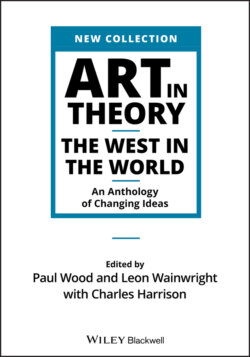Читать книгу Art in Theory - Группа авторов - Страница 81
IC10 Thomas Hobbes (1588–1679) ‘Of the Naturall Condition of Mankind’
ОглавлениеAt the other end of the spectrum from ideas of the ‘noble savage’ (cf. IC12, IIC2) lies Thomas Hobbes’s conception of the state of nature as a ‘war of all against all’. For Hobbes, this condition, or something close to it, was exemplified in his own time by the newly discovered peoples of North America. Their apparent lack of agriculture and settled towns, not to mention anything recognizable as ‘polite arts’, led Hobbes to identify them as belonging to modern equivalents of a primitive stage of human development existing before the onset of civilization as he would have understood it (cf. IC17). The present extract is taken from Chapter 8, ‘Of the Naturall Condition of Mankind, as concerning their Felicity and Misery’, of Hobbes’s Leviathan, published in 1651 shortly after the end of the English Civil War. We have used the modern edition, with an introduction and notes by Christopher Brooke, London: Penguin Classics, 2017, pp. 102–4.
Hereby it is manifest, that during the time when men live without a common Power to keep them all in awe, they are in that condition which is called Warre; and such a warre, as is of every man, against every man. […]
Whatsoever therefore is consequent to a time of Warre, where every man is Enemy to every man; the same is consequent to the time, wherein men live without other security, than what is their own strength, and their own invention shall furnish them withall. In such condition, there is no place for Industry; because the fruit thereof is uncertain: and consequently no Culture of the Earth; no Navigation, nor use of the commodities that may be imported by Sea; no commodious Building; no Instruments of moving, and removing such things as require much force; no Knowledge of the face of the Earth; no account of Time, no Arts; no Letters; no Society; and which is worst of all, continuall feare, and danger of violent death; And the life of man, solitary, poore, nasty, brutish and short. […]
It may peradventure be thought, there was never such a time, nor condition of warre as this; and I believe it was never generally so, over all the world: but there are many places, where they live so now. For the savage people in many places of America, except the government of small Families, the concord whereof dependeth on naturall lust, have no government at all; and live at this day in that brutish manner, as I said before.
